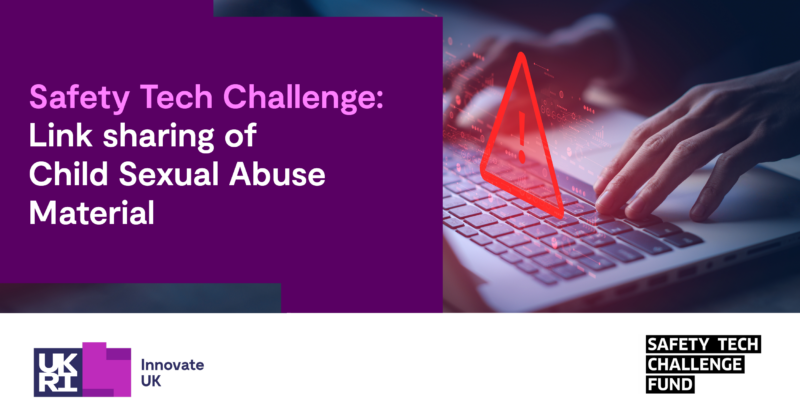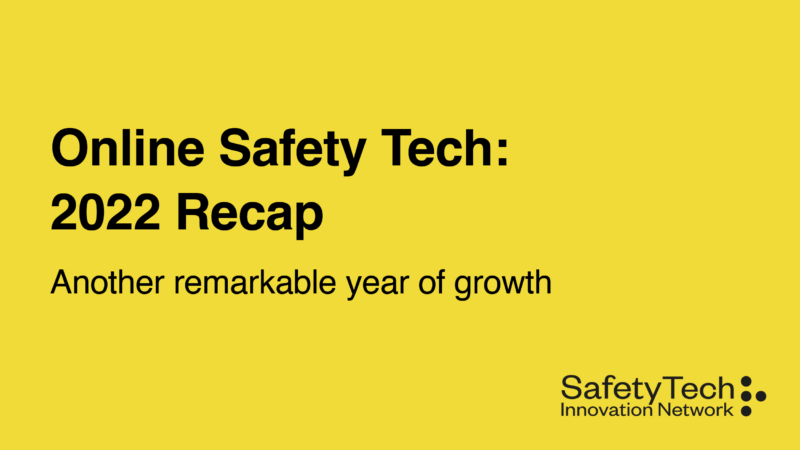Building better online communities: Resilience in 2021 and beyond
Expert panellists shed light on the online community management sector and discussed how to create a peer support network and provide access to the tools needed in the field, at our latest event.
Online community managers act as moderators within online community spaces such as online forums, overseeing the interactions between users and the content shared. They are also responsible for reporting inappropriate content to relevant organisations, and raising concerns for the health of community members where appropriate.
The job can be tough, with individual moderators often working in isolation, and on content that is frequently distressing. A number of studies have documented the adverse psychological impact on individual moderators, while an increasing number of voices from within the moderation industry are calling for stronger support networks and consistent, high-quality shared resources and guidelines.
Our expert panel, chaired by Dr Richard Graham, Consultant Psychiatrist of Good Thinking led attendees through an overview of the most pressing issues facing moderators, developing a series of practical recommendations for next steps. Panellists were:
- Vincent Boon, CEO, Giants Technology;
- Darren Gough, Founder and MD, Island23 Ltd;
- Nancy Kinder, Knowledge and Community Management Consultant; and
- Mhairi Underwood, Head of Community, The Student Room Group.
Managing online communities, from a community managers perspectivePanellists discussed what online community managers have to consider on a day-to-day basis in order to fulfil their role:
- News monitoring: Managers must be aware of external trends and events that occur outside of their community that may impact posts and interactions amongst users.
- Data sharing: They must also be concerned with users sharing personal information in private messages, and encourage users to keep personal information to themselves for safety purposes.
- Cultural awareness: The understanding of, and consideration to, multiple cultures is also an integral part of their role as the world becomes increasingly interconnected. This connectedness can cause cultural clashes online and must be closely moderated at all times.
An invisible profession
Panellist Nancy Kinder acknowledged that online community management is often a job done in isolation, raising important questions about the profession:
- Why is little known about online community management as a main job function?
- Do online community managers fall into their position by accident, rather than by design?
- Why do users of online communities not realise that community managers are real people doing a job behind the screen?
- Why do organisations with a need for online community managers not fully understand why they need to exist?
- Why isn’t there a support network in place to provide online community managers with the tools they need to perform their job? There are some resources available to online community managers which can be found on the Trust & Safety Profession Association website.
The discussion culminated with an agreement that awareness of community managers needs to be raised in the consciousness of online communities and organisations that use them, to better understand what they do and why they exist.
Developing technology – Humans vs Code
During the event, it was discussed whether automatic systems could replace humans in removing concerning images or content. While code can be created to remove images that have been flagged across multiple sites, there are many instances where human reason and compassion are required. By nature, humans are controlled by emotion and, therefore, the human ability to consider context is vital to make a judgement based on sentiment when reviewing users’ posts.
Where does duty of care end?
A discussion was held on duty of care and where it ends. The following points were made:
- A safe online environment: Online community managers have a duty of care to create a safe online environment for members.
- A safe offline environment: Online community members who meet online may meet offline; some community models are created for this specific reason. Managers can, and should, communicate safety tips, such as not sharing personal information and meeting in a public space. Further discussion around the duty of care offline is required for the industry to meet an agreement on a standard for where duty of care ends.
If you’re an online community manager and need to report harmful content visit the Report Harmful Content website.
Sector priorities
Panellists shared their top priorities for the future of the safety tech sector:
- Training, sector recognition and career progression: Training and support for online community managers would help raise professional career recognition of the sector. It is important that online community management is seen as a career and not a job; the sector needs experienced managers to bring ongoing innovation and acquired knowledge to the profession. Ongoing training for managers would help standardise processes and procedures and also develop the experience managers the sector requires.
- Create a common set of guidelines: In line with training for workers in the online community management space, the creation of best practice guidelines for the sector would assist managers in their approach to managing situations they may have not come across before.
- Signposting information: Many new managers to the sector do not have the contacts or knowledge of where to go when they need assistance. A single repository for information would bring the community together and could contain all the information and tools required for a community manager to do their job. The US-based Trust and Safety Professionals Association has created a single webpage that brings together existing resources and community management guidelines.
- Mentorship: As online community managers often do their jobs alone, a mentorship programme for the sector would significantly help to connect the community and aid in the transition of knowledge from managers who have worked in the sector for a number of years to newer sector members.
- Developer and user collaboration: Tech developers and online community managers need to collaborate in the development of technology for mutual benefit. Developers take the user experience of online community managers to help inform design and build better solutions that will in turn improve the working life of online community managers, whose needs will be met with the creation of new tools.
What to find out more about Safety Tech Innovation Networks news, information and events? Sign up to the newsletter.


